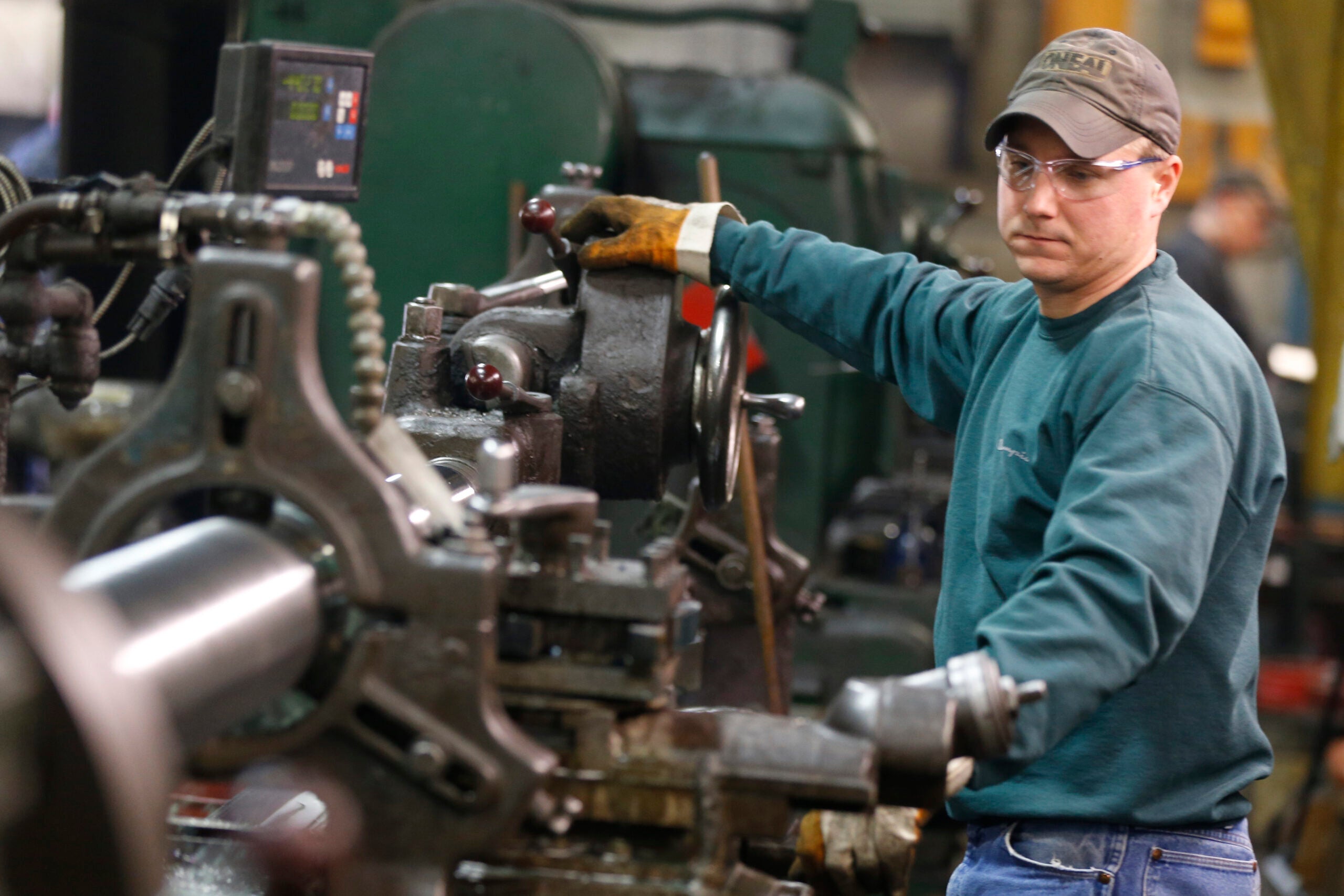We continue our series of Congressional candidate forums, and we meet one of the candidates running for Wisconsin’s 6th Congressional District seat, Libertarian Gus Fahrendorf. We also learn why low-wage jobs are growing fastest in Wisconsin and find out what our members of Congress are up to this week.
Featured in this Show
-
Since 2000, Low-Wage Jobs Grew Fastest In Wisconsin
A new report shows low-wage jobs in Wisconsin have grown faster than any other wage category since the year 2000. The lead author of this study explains why low-wage jobs are growing so fast and what this says about our state economy.
-
This Week In Congress – October 29, 2014
USA Today Politics and Congress Editor Paul Singer joins Central Time for his weekly update on happenings in Congress.
-
6th Congressional District Candidate Forum With Libertarian Gus Fahrendorf
Central Time hosts a candidate forum with Gus Fahrendorf, the Libertarian candidate running for Wisconsin’s 6th Congressional District seat.
-
Study: Wisconsin Job Growth Dominated By Low-Paying Wages
Since 2000, Wisconsin’s low-wage jobs grew at a larger rate than any other category, a problem made worse by the Great Recession.
A new study by Marc Levine, senior fellow and founding director of the University of Wisconsin-Milwaukee Center for Economic Development, found that the state’s job growth has been dominated by jobs paying $12.50 an hour or less, or about $26,000 annually.
“We’ve seen a growth in jobs like fast-food cooks, and waiters and waitresses, food preparation workers, general child care workers,” said Levine — adding that many of these jobs paid less than $10 an hour.
Meanwhile, middle-wage occupations have suffered. The report showed that jobs paying between $12.50 and $25 an hour are sliding down into the low-wage brackets when adjusting for inflation.
Levine said the recession obliterated jobs in all wage brackets, but that middle-wage occupations were hit hardest, accounting for 90 percent of the job loss.
“The loss of the middle tier has augmented the number of low-wage jobs,” said Levine. “That, combined with the rapid growth of other low-wage jobs, has meant we’re increasingly becoming a low-wage economy.”
Wisconinsin’s gubernatorial race has put a spotlight on minimum wage. The candidates differ vastly on the issue. Republican Gov. Scott Walker has essentially called it a non-issue, while his Democratic opponent Mary Burke has called for a hike from $7.25 an hour to $10.10.
According to the latest Marquette Law School poll, 57 percent of the state support increasing the minimum wage while 39 percent oppose it. Roughly 89 percent of Burke’s supporters favor the wage increase, compared to 28 percent of Walker’s supporters.
“Gov. Walker has been claiming that the minimum wage doesn’t serve a purpose,” said Levine. “Which I think given these data, that he might be wrong on that.”
Levine said his research didn’t reveal a specific problem or a quick fix, but he encouraged elected officials to take a hard look at the policy influencing wages.
“Unless we do something differently in the policy realm, we’re likely to see these same economic results occurring in the next decade,” Levine said.
Episode Credits
- Rob Ferrett Host
- Veronica Rueckert Host
- Amanda Magnus Producer
- Galen Druke Producer
- Chris Malina Producer
- Marc Levine Guest
- Paul Singer Guest
- Gus Fahrendorf Guest
Wisconsin Public Radio, © Copyright 2024, Board of Regents of the University of Wisconsin System and Wisconsin Educational Communications Board.


